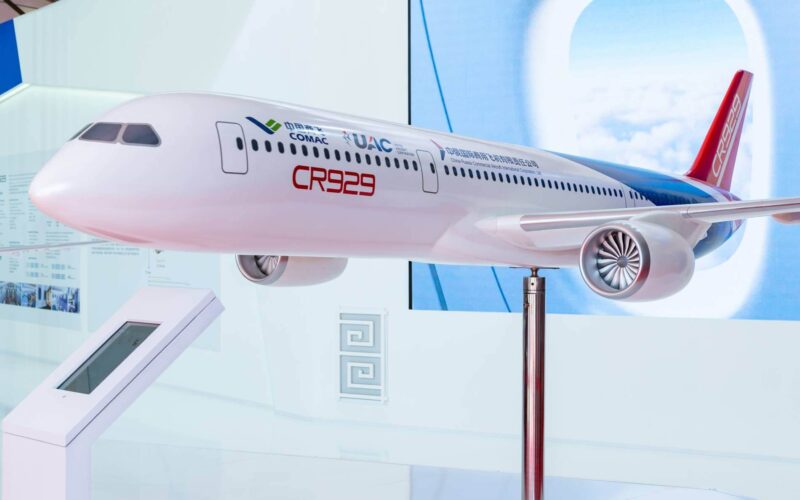Chinese aircraft manufacturer COMAC is unhappy with Russia’s role in the CR929 project and is considering rejecting Russia’s demands to share profit.
The manufacturer is also looking into the possibility of bringing Western companies on board in the hope of eventually flying the aircraft in the US and Europe.
The information was first reported by the South China Morning Post (SCMP), citing two separate sources familiar with the matter.
The report follows comments made by Russian Deputy Prime Minister Yury Borisov, who said that Russia is dissatisfied with the project and has been considering withdrawing its participation.
Read more: Russia considers withdrawing from CR929 project: Russian Deputy Prime Minister
According to SCMP sources, China is considering freezing Russia out of the profits from its domestic market.
In 2020 reports emerged regarding a dispute over the sales of the CR929, as Russia’s United Aircraft Corporation (UAC) allegedly planned to sell the aircraft on the Chinese market.
The dispute could result in China denying the Russian company such a capability, while allowing it to share some of the profits from international sales.
Russia is also unhappy with China wanting to collaborate with Western companies on the jet, leading to further disagreements, the report explains.
The sources also claim that COMAC is considering using Western components, such as landing gear and engines, during the development of the CR929.
According to the report, China considers Russian-made landing gear to be less reliable, while Russian-made engines are still under development, prompting COMAC to look for alternatives made by Rolls-Royce or General Electric.
The report also mentions that while Russia has started work on composite wings for the aircraft, progress is slower than intended as a result of financial problems.
Russian company AeroComposit began manufacturing some elements of the CR929’s airframe in late 2021.
The CR929 will be a long-range wide-body twinjet designed to compete with Boeing 787 and Airbus A330neo. The aircraft entered development in 2012, with China and Russia establishing CRAIC, a joint venture between COMAC and Russia’s UAC.
However, development was plagued by disagreements between the two companies, leading to the eventual production being delayed by several years.

